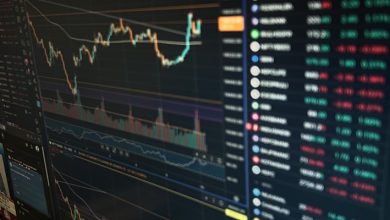The Impact of NFTs on Decentralized Gaming

- Understanding NFTs and their role in decentralized gaming
- Exploring the intersection of NFTs and blockchain technology in gaming
- How NFTs are revolutionizing in-game assets and ownership
- The economic implications of NFTs in the world of decentralized gaming
- Challenges and opportunities of integrating NFTs into decentralized gaming platforms
- The future of gaming: NFTs as a game-changer in decentralized ecosystems
Understanding NFTs and their role in decentralized gaming
NFTs, or non-fungible tokens, are unique digital assets that are stored on a blockchain. In the world of decentralized gaming, NFTs play a crucial role in providing players with ownership and control over in-game assets. These assets can range from digital collectibles to virtual real estate, and they can be bought, sold, and traded on various decentralized marketplaces.
One of the key advantages of NFTs in decentralized gaming is that they allow players to truly own their in-game assets. Unlike traditional games where items are stored on centralized servers and can be taken away by the game developers at any time, NFTs give players full control over their digital possessions. This not only adds a new layer of authenticity to the gaming experience but also opens up new opportunities for players to monetize their skills and assets.
Moreover, NFTs enable players to interact with games in ways that were not possible before. For example, players can use their NFTs across multiple games, creating a seamless gaming experience that transcends individual titles. This interoperability fosters a sense of continuity and allows players to build a digital identity that can be carried over from one game to another.
Exploring the intersection of NFTs and blockchain technology in gaming
Blockchain technology has revolutionized the gaming industry by introducing NFTs, which are unique digital assets that can be bought, sold, and traded on the blockchain. This has opened up new possibilities for decentralized gaming, where players have true ownership of in-game assets.
NFTs in gaming allow for verifiable scarcity and provenance of digital items, creating a new level of authenticity and value for players. By using smart contracts on the blockchain, game developers can ensure that players truly own their in-game items, giving them the freedom to buy, sell, and trade as they please.
The intersection of NFTs and blockchain technology in gaming has the potential to revolutionize the industry, making games more immersive, engaging, and rewarding for players. It also opens up new revenue streams for developers, who can earn royalties every time their in-game assets are sold in the secondary market.
Overall, the impact of NFTs on decentralized gaming is significant, as it brings a new level of transparency, ownership, and value to the gaming experience. Players are no longer limited to virtual items that are locked within a game – they now have the freedom to truly own and control their digital assets.
How NFTs are revolutionizing in-game assets and ownership
NFTs are transforming the world of decentralized gaming by offering a new way for players to truly own their in-game assets. These non-fungible tokens provide a unique digital representation of items or characters within a game, allowing players to buy, sell, and trade them with complete ownership rights. This revolution in ownership is empowering gamers to have true control over their virtual belongings, leading to a more engaging and immersive gaming experience.
With NFTs, players can securely store their assets on the blockchain, ensuring their authenticity and scarcity. This not only adds value to in-game items but also opens up new opportunities for players to monetize their gaming experience. By tokenizing assets as NFTs, developers can create a truly decentralized economy within their games, where players have the freedom to buy, sell, and exchange assets without any central authority.
Furthermore, the use of NFTs in gaming allows for cross-platform compatibility, meaning that players can use their assets across different games and platforms. This interoperability not only enhances the value of in-game assets but also fosters a sense of community among players. By owning NFTs, gamers can build a digital identity that transcends individual games, creating a more connected and inclusive gaming ecosystem.
The economic implications of NFTs in the world of decentralized gaming
NFTs have had a significant impact on the world of decentralized gaming, not only in terms of gameplay but also in economic implications. These unique digital assets have revolutionized the way in-game items are bought, sold, and traded, creating new opportunities for gamers and developers alike.
One of the key economic implications of NFTs in decentralized gaming is the ability for players to truly own their in-game assets. Unlike traditional games where items are owned by the game developers, NFTs allow players to have true ownership of their digital belongings. This ownership opens up a whole new world of possibilities, such as the ability to sell or trade items with other players, or even use them as collateral for loans.
Furthermore, the decentralized nature of NFTs means that there is no central authority controlling the market for in-game assets. This has led to a more open and transparent economy, where the value of items is determined by supply and demand, rather than by the whims of a game developer. This has created a new level of trust and confidence among gamers, as they can be sure that the value of their assets is not subject to manipulation.
Overall, the economic implications of NFTs in decentralized gaming are vast and far-reaching. They have the potential to completely transform the way we think about ownership and value in the gaming world, opening up new opportunities for players, developers, and investors alike.
Challenges and opportunities of integrating NFTs into decentralized gaming platforms
Integrating NFTs into decentralized gaming platforms presents both challenges and opportunities for the gaming industry. One of the main challenges is the complexity of implementing NFT technology into existing gaming infrastructures. Developers need to ensure compatibility and seamless integration to provide a smooth user experience.
On the other hand, the opportunities that NFTs bring to decentralized gaming platforms are vast. NFTs can revolutionize in-game asset ownership, allowing players to truly own their digital items and trade them with other users. This opens up a new revenue stream for both players and developers through the creation and sale of unique and valuable assets.
Another challenge is the potential for increased fraud and security risks associated with NFTs. As digital assets become more valuable, they also become more attractive targets for hackers and scammers. Developers need to implement robust security measures to protect users’ assets and prevent fraudulent activities.
Despite these challenges, integrating NFTs into decentralized gaming platforms can lead to a more immersive and engaging gaming experience. Players can customize their gaming experience with unique assets, creating a sense of ownership and personalization. This can increase player retention and loyalty, ultimately driving more traffic and revenue to decentralized gaming platforms.
The future of gaming: NFTs as a game-changer in decentralized ecosystems
NFTs are revolutionizing the gaming industry by introducing new possibilities for decentralized ecosystems. These unique digital assets are changing the way players interact with in-game items, providing ownership and scarcity that was previously impossible to achieve. With NFTs, players can truly own their virtual possessions, buy, sell, and trade them on open marketplaces, and even use them across multiple games.
By leveraging blockchain technology, NFTs ensure transparency, security, and immutability, making them a game-changer for decentralized gaming. Developers can create provably rare items, digital collectibles, and unique experiences that players can truly invest in. This not only enhances the gaming experience but also opens up new revenue streams for both developers and players alike.
Furthermore, NFTs enable interoperability between different games and platforms, allowing players to use their assets seamlessly across various virtual worlds. This interconnectedness creates a more dynamic gaming environment, where players can explore new opportunities and collaborations while maintaining ownership of their digital assets.
Overall, NFTs have the potential to reshape the future of gaming, driving innovation, creativity, and community engagement in decentralized ecosystems. As the technology continues to evolve, we can expect to see even more exciting developments in the intersection of NFTs and gaming, paving the way for a more immersive and interactive gaming experience for players worldwide.



